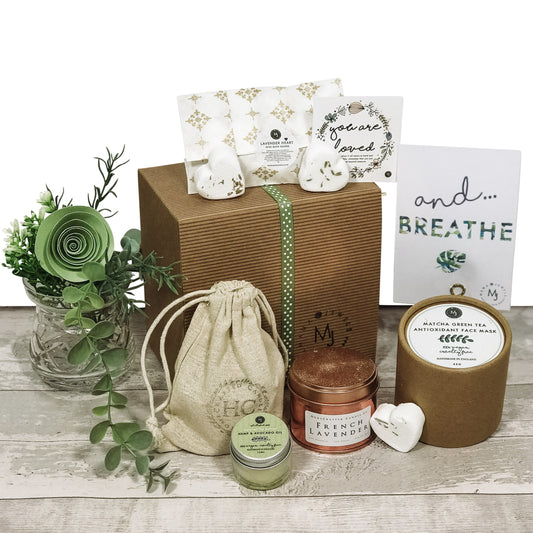Share
The working parents guide to staying calm this summer holidays
Surviving (and Thriving!) the Summer School Holidays: Your Counsellor's Guide to Calm & Connection!

Phew! The school gates are just about to swing shut, and summer is officially here! For many of us, the phrase "summer holidays" conjures images of sun-drenched bliss and endless relaxation. But for working parents, it often feels more like a high-wire circus act: juggling spreadsheets with splash pads, client calls with cries of "I'm bored!", and trying to keep all the plates spinning without dropping a single one.
As a counselling therapist and working parent, I see firsthand the unique pressures this time of year brings. The mental load can feel immense, and it’s crucial to acknowledge that it’s okay to feel overwhelmed sometimes. But fear not! This isn't about achieving Instagram-perfect holidays; it's about staying calm, healthy, and connected – for both you and your wonderful little humans. And guess what? We're going to borrow some super-powers from Cognitive Behavioural Therapy (CBT) to help us out!
The Great Summer Juggle: Acknowledging Your Superpower (and Your Stressors!)
Let's be real: you're amazing! You're navigating two full-time roles, and that takes incredible resilience. However, this double-duty can sometimes lead to increased stress, anxiety, and even guilt. You might find yourself thinking, "I should be doing more with the kids," or "I'm not focusing enough on work." These "shoulds" can be mental energy drains!
And what about the kids? While they might be thrilled to be off school, the sudden shift in routine, less structured time, and more reliance on parents for entertainment can also lead to their own emotional wobbles, boredom, and even sibling squabbles that test everyone's patience!
CBT Top Tips for Parents: Your Summer Sanity Toolkit!
CBT is all about understanding how our thoughts, feelings, and behaviours are connected, and then making small, practical changes to feel better. Let's put it into action!
1. Taming the Thought Gremlins: Cognitive Restructuring Fun!
Ever notice those nagging thoughts that pop up and make you feel worse? "I'm a terrible parent if my kids watch TV," or "My boss will think I'm slacking off." These are our "thought gremlins"!
Catch it, Check it, Change it:
Catch It: When you feel stressed, pause and identify the thought. Write it down if you like!
Check It: Is this thought 100% true? Is it helpful? What's the evidence for and against it? (e.g., "My kids watch TV, but we also go to the park and read books. It's about balance!")
Change It: Reframe it! What's a more realistic or kinder thought? (e.g., "I'm doing my best to balance work and family, and sometimes screen time is a helpful tool.")
The "Good Enough" Mantra: Let go of perfection! Remind yourself: "Good enough is perfectly perfect for me and my family right now." Repeat this whenever the "shoulds" creep in!
2. Sprinkle in the Joy: Behavioural Activation for Busy Bees!
When we're stressed, we often cut out the very things that make us feel good. Behavioural activation is about intentionally scheduling activities that bring you pleasure or a sense of accomplishment.
The "Joy Jar" (for grown-ups!): On little slips of paper, write down quick, easy things that make you smile: 5 minutes of mindful breathing, listening to your favourite song, a quick walk around the block, a cup of tea in silence. When you have a spare moment (or feel overwhelmed), pull one out and do it!
The "Micro-Adventure" List: Think tiny adventures! Lunch in the garden, a quick 10-minute read of a book, a silly dance party with the kids. Even small doses of positive experiences add up.
Pre-Plan Your Power-Downs: Schedule your breaks! Just like you schedule meetings, schedule 15-minute "parent reset" times. This gives you something to look forward to and ensures you actually take a breather.
3. Breathe, Baby, Breathe! Mindfulness & Relaxation Magic!
Mindfulness helps us stay in the present moment, rather than getting caught up in worries about the past or future.
The 5-4-3-2-1 Grounding Technique: When you feel overwhelmed, quickly name:
- 5 things you can see
- 4 things you can hear
- 3 things you can feel (e.g., clothes on your skin, the chair)
- 2 things you can smell
- 1 thing you can taste This brings you back to the here and now.
 Mindful Sips: When you have a drink, instead of gulping, really focus on the taste, temperature, and sensation. Even 30 seconds of mindful drinking can calm your nervous system.
Mindful Sips: When you have a drink, instead of gulping, really focus on the taste, temperature, and sensation. Even 30 seconds of mindful drinking can calm your nervous system.
"Parent Pause" Playground Edition: When the kids are happily playing at the park, instead of checking your phone, take 2 minutes to just observe. Watch them, listen to the sounds, feel the sun.
4. Problem-Solving Superpowers!
Some summer stresses are practical! Instead of letting them fester, apply a CBT-style problem-solving approach.
Define the Problem: Be specific! "Kids are bored every afternoon" is better than "Summer is awful."
Brainstorm Solutions: Get creative! Don't judge ideas yet. (e.g., rota of activities, playdates, library visits, quiet time boxes).
Weigh the Pros & Cons: What's realistic? What's manageable?
Pick a Solution & Plan it: Break it down into small steps.
Review: Did it work? What can be adjusted next time?
CBT Top Tips for Children: Keeping Their Little Brains Happy Too!
Our children pick up on our stress, but they also benefit hugely from having their own emotional regulation tools. You can facilitate these!
1. The "Feeling Faces" Check-in: Emotional Literacy
Help them identify their emotions.
Daily Check-in: At breakfast or before bed, ask, "How are you feeling today/how was your day?" You can use a feelings chart with different faces (happy, sad, angry, worried).
Name it to Tame it: If they're grumpy, "It looks like you're feeling frustrated right now. Is that right?" Just naming the emotion can be incredibly validating and calming for them.
2. Pleasure & Mastery Activities: Fun with Purpose!
Ensure they have a mix of activities that bring them joy (pleasure) and a sense of accomplishment (mastery).
The "Activity Menu": Work together to create a list of indoor and outdoor activities they enjoy. When they say "I'm bored," direct them to the menu! (e.g., building a fort, drawing, helping with a chore, board games, riding bikes).
"Contribution Time": Involve them in age-appropriate chores or tasks. Setting the table, watering plants, helping to sort laundry. This gives them a sense of purpose and mastery.
3. Mindful Moments for Little Ones: Calm Creatures!
Simple mindfulness can work wonders for children.
"Teddy Bear Breathing": Have them lie down with a teddy bear on their tummy. Watch the teddy bear rise and fall with their breath. This teaches deep belly breathing.
"Sensory Scavenger Hunt": Go outside and ask them to find something soft, something rough, something green, something that smells nice. This engages their senses and grounds them.
The "Calm Down Corner": Create a small, cosy space with cushions, books, and maybe a sensory bottle (water, glitter, glue). When they're feeling big emotions, suggest they go to their calm-down corner for a few minutes.
The Family Team: Working Together!
Family Meeting Magic: Have a short, fun family meeting at the start of the holidays (or each week). Discuss everyone's needs, what the week might look like (work times vs. fun times), and delegate small responsibilities. Kids thrive on predictability and involvement!
Divide and Conquer (where possible!): If you have a co-parent, discuss how you can share the load. Even an hour where one parent is "on duty" with the kids while the other focuses on work can be a game-changer.
Self-Compassion: Be Your Own Best Friend!
This is probably the most important tip. You are not a robot. You are a human being doing an incredible job.
Drop the Guilt Trip: Guilt serves no positive purpose here. Acknowledge it, then let it go. You are doing enough.
Talk to Yourself Kindly: If you wouldn't say it to your best friend, don't say it to yourself!
Celebrate the Small Wins: Did you get through a workday? Did you manage a tantrum calmly? Did you make a quick, healthy meal? Pat yourself on the back for every little victory!
Embracing the Imperfect Summer!
The summer holidays don't have to be a highlight reel. There will be messy moments, challenging days, and times you feel utterly exhausted. And that's perfectly normal! By incorporating these CBT-inspired tips, you're not just surviving; you're building resilience, fostering emotional intelligence in your children, and creating a summer that's calmer, healthier, and more connected for everyone.
So, take a deep breath, grab your "Joy Jar," and remember: you've got this! Happy summer, superstar parents!







